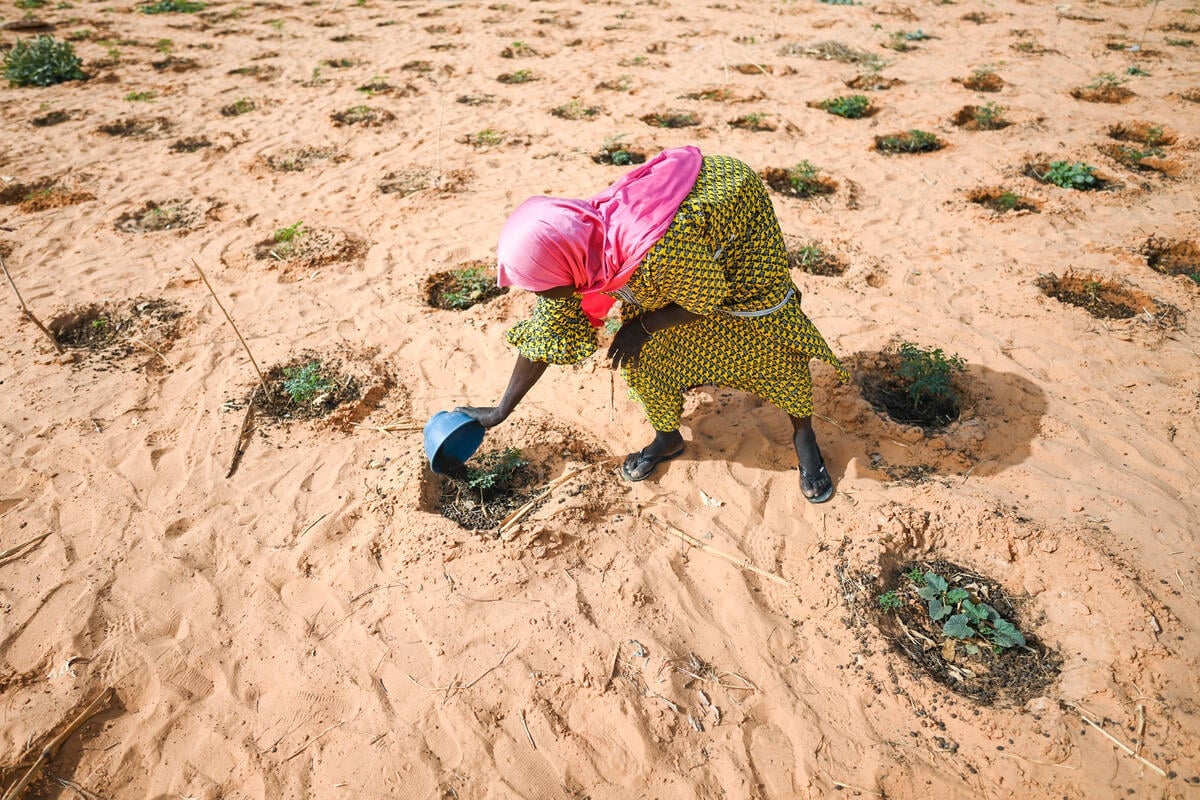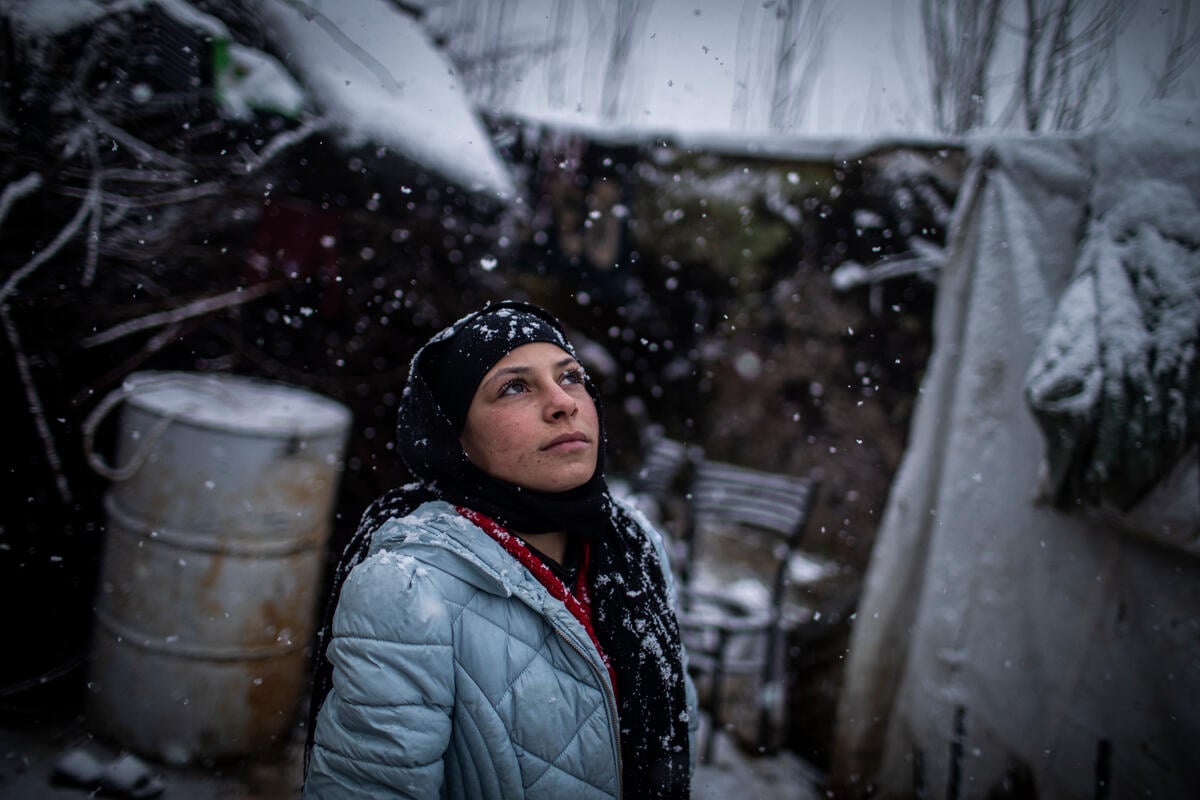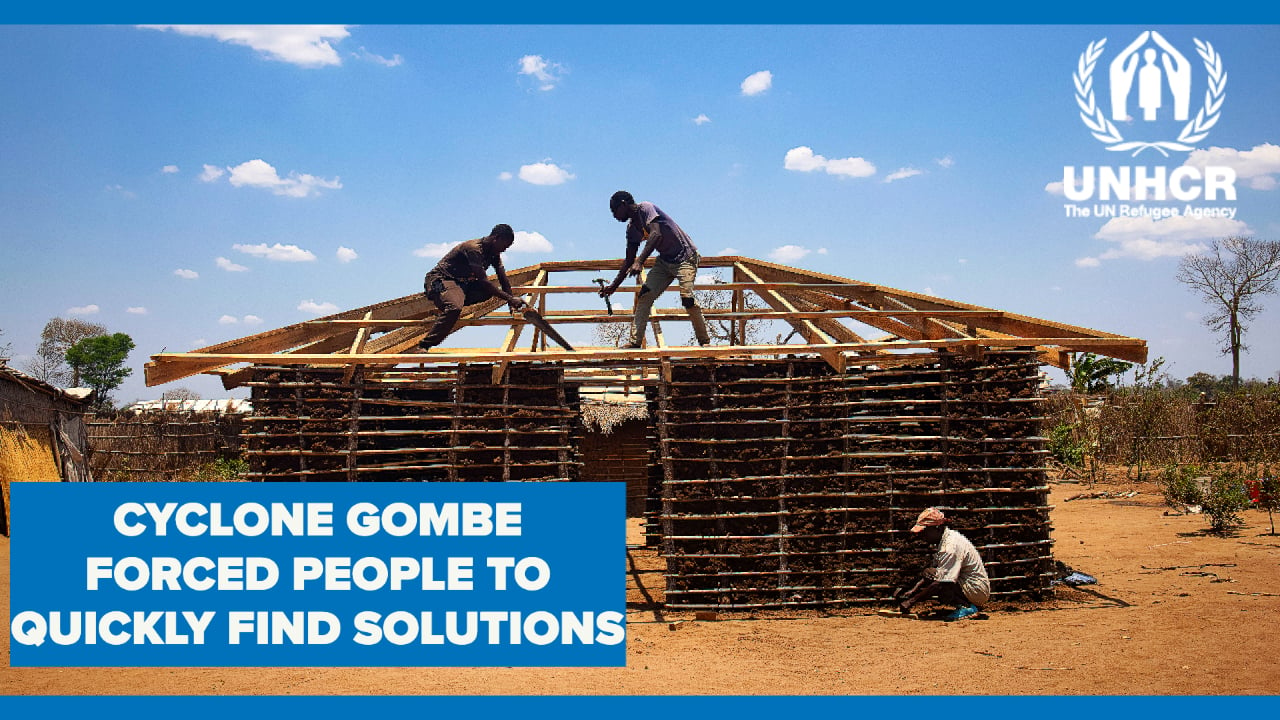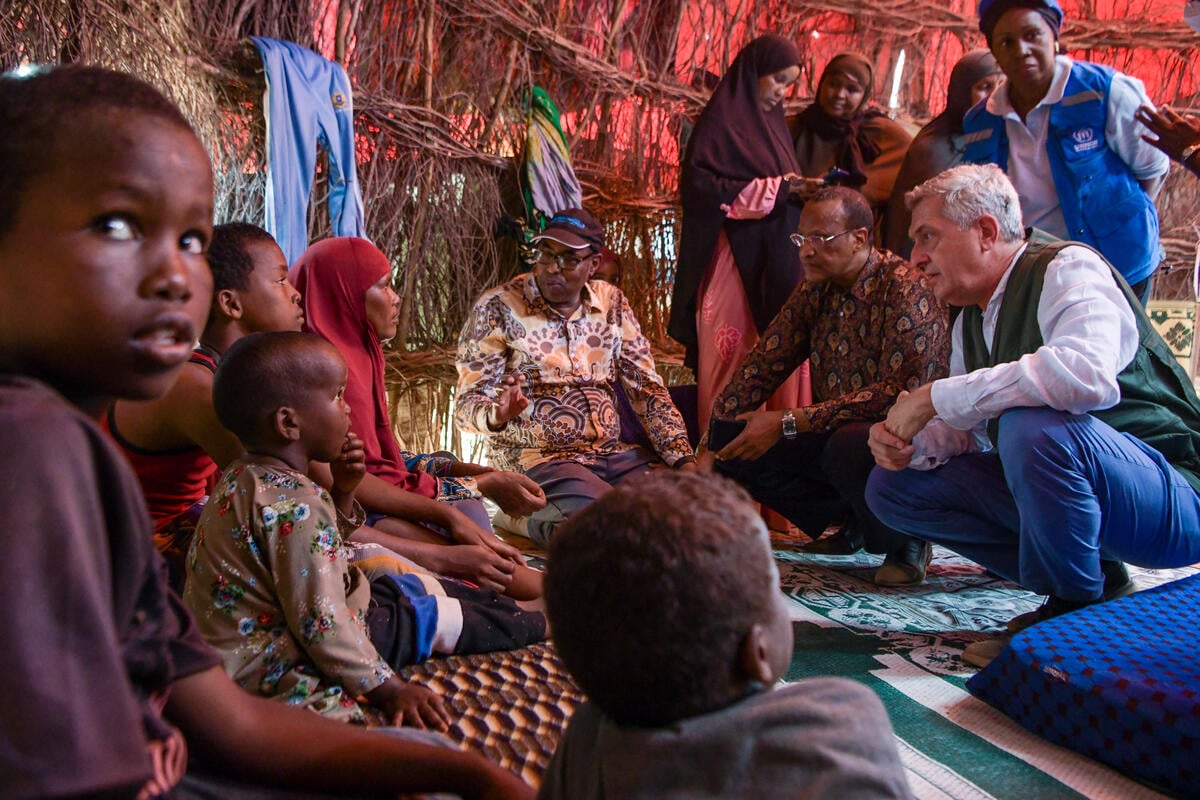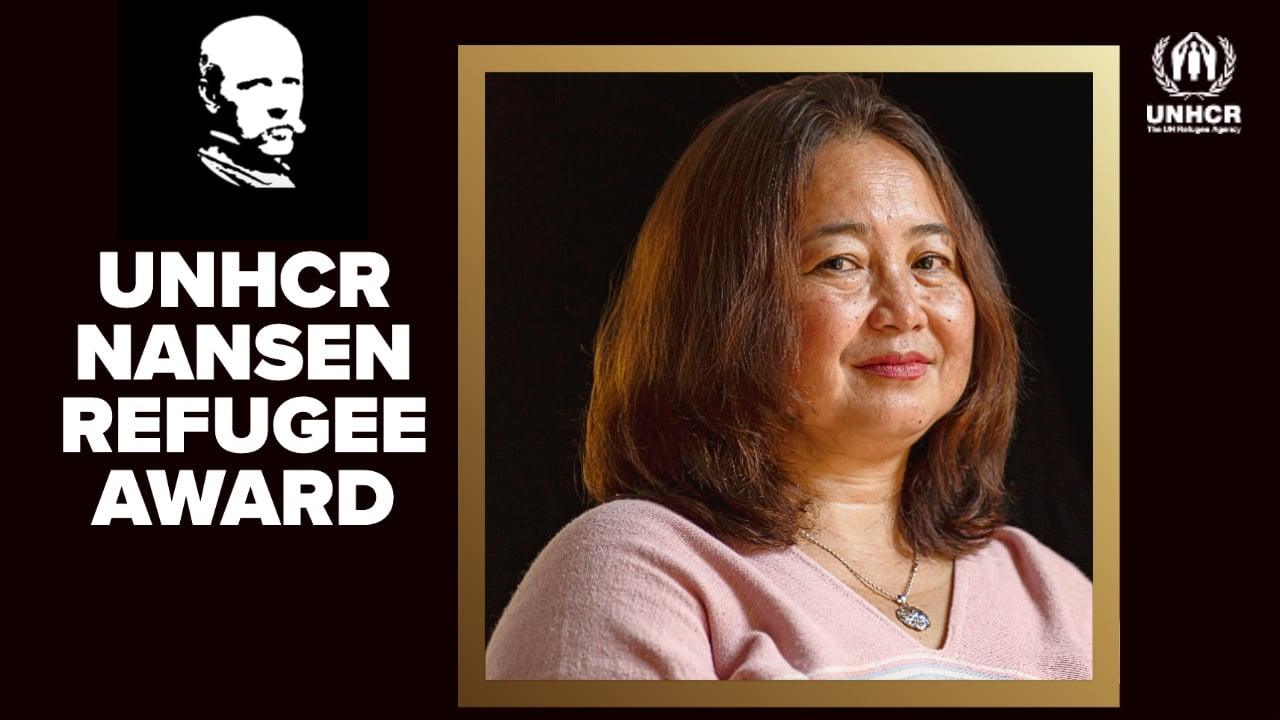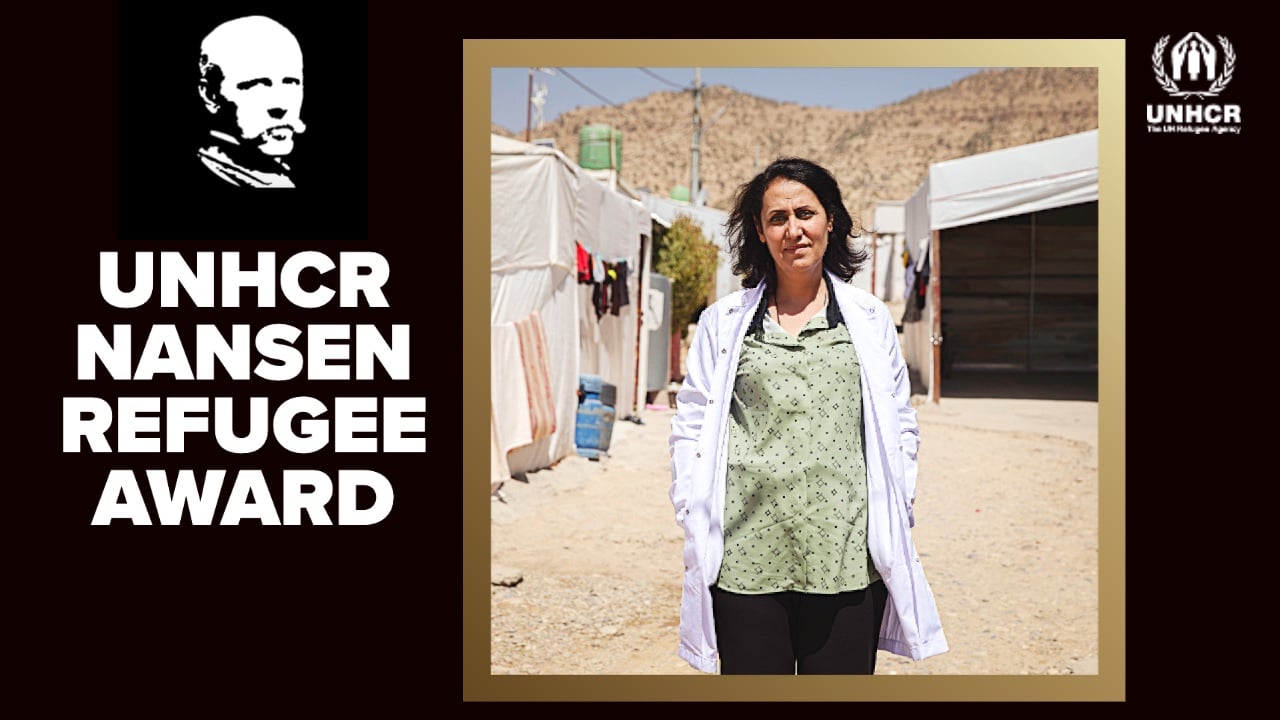UNHCR distributing winter aid to tens of thousands of displaced Pakistanis
UNHCR distributing winter aid to tens of thousands of displaced Pakistanis

ISLAMABAD, Pakistan, November 24 (UNHCR) - As temperatures drop in north-west Pakistan, the UN refugee agency has begun to distribute additional relief supplies to some 85,000 internally displaced people (IDP) living in camps. This aid will help the IDPs, gathering some 13,600 families, to cope with the hardships of winter.
The first phase of the winterization drive started on Monday in Jalozai camp, which is located near Peshawar in the North West Frontier Province (NWFP). It will continue in eight camps in the lead up to the Eid al-Adha Muslim holiday, which begins on Friday.
Each family will receive six blankets, four sleeping mats and two plastic sheets for warmth and insulation, in addition to other relief supplies received when they initially registered in the camp. The aid will be handed out with the help of community leaders this week in several camps, including Jalozai, Jalala, Benazir complex, Wali Kandow and Palosa in the NWFP.
Fifty-year-old farmer Gul welcomed the assistance that he received from UNHCR in Jalozai, while adding that he missed his village in the Federally Administered Tribal Areas of Pakistan.
"Many organizations provide assistance to us and we are surviving, but there is no comparison between living in a tent and living in a house," said the father of six, who fled fighting near his home in Bajaur agency a year ago. "I have worked hard to earn a living all my life. I don't like sitting idle and waiting for assistance, but then I have no other choice."
Young mother, Meena, was - perhaps surprisingly - looking forward to the winter. The 26-year-old, who also fled Bajaur last year, said her infant son fell ill during the summer because it was so hot. "I am hopeful that with the change of season, his health will improve," she said. But she particularly welcomed the blankets, which will keep the family warm during the winter.
Meanwhile, as part of the winterization programme, standard canvas tents are being replaced with all-weather tents or being reinforced with extra insulation. More than 3,000 tents have been replaced to date in the Jalozai camp. Newer camps, like Wali Kandaw in the Lower Dir district, were established with all-weather tents.
More than 12,000 residents of the two Kacha Ghari camps will receive the winter packages and new tents when they relocate to Jalozai next week after Eid. A second round of winter assistance will follow including, woollen shawls, solar lamps and fire wood.
There are currently more than 100,000 people residing in 10 camps in the North West Frontier Province. Jalozai is the largest, accommodating more than 80,000 people, primarily from the Federally Administered Tribal Areas (FATA). Some IDPs have now lived at Jalozai camp for a year. About 30,000 people from Bajaur and Bara in Khyber Agency have registered at the camp since October.
Up to 900,000 people from the northern areas of the FATA and NWFP could still be displaced and staying with host communities, according to overall relief distribution figures. Movement back and forth between displacement and return areas has made it difficult to have a more precise estimate on the remaining IDPs. In partnership with other agencies, UNHCR is carrying out a re-screening process in five districts of NWFP to better understand the scope and needs of the remaining displaced population.
For humanitarian agencies such as UNHCR, there is a very complex and mixed picture of displacement in north-west Pakistan, including care and maintenance for the longer term displaced people, return and reintegration programmes and emergency response for new displacements, such as those from South Waziristan. More than 268,000 displaced people (36,700 families) from South Waziristan have now been verified by Pakistan's National Database and Registration Authority.
By Ariane Rummery in Islamabad and Rabia Ali in Peshawar, Pakistan


